Gay Talese: The Truthdig Interview
The legendary father of New Journalism discusses his first new book in 14 years; the fallout of his wife's publication of James Frey's fabricated memoir; and how he may have spawned the "The Sopranos."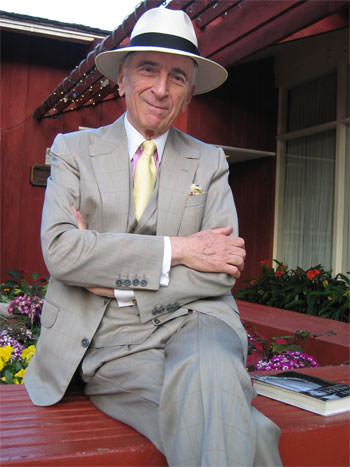
Just as it is difficult for many people under the age of 50 to understand why Orson Welles is consistently ranked as one of the most influential film directors of all time, it may be equally difficult for people of the same age group to understand why Gay Talese is universally regarded as one of the most influential journalists of all time.
Welles, especially in ?Citizen Kane,? pioneered narrative techniques–like staggered, fractured flashbacks–that have become so much a hallmark of modern cinema that we scarcely notice them today?let alone realize how revolutionary they were for their time.
In the same way, Talese was one of a handful of journalists (along with Tom Wolfe and Truman Capote) who pioneered a form of journalism so influential that it remains the dominant template for most long-form nonfiction stories to this day.
Dubbed New Journalism, the style is characterized by nonfiction stories that use fictional story-telling techniques like extended dialogue, scene-setting and detailed characterization of subjects? thoughts. Every nonfiction book that reads like a novel represents an homage to Talese. Indeed, a few years ago author David Halberstam called Talese ?the most important nonfiction writer of his generation, the person whose work most influenced at least two generations of other reporters.?
Talese?s reputation rests not only on the innovations he made in story-telling techniques but also on his counterintuitive choice of story subjects. Rather than focus on life?s winners, Talese focused on the losers?the uncelebrated, the everyman, the person on the margin. His wildly influential piece for Esquire magazine, ?Frank Sinatra Has a Cold,? examined not Sinatra per se but the lives of the sycophants orbiting around the famed crooner.
Born in a small town near Atlantic City, N.J., Talese spent nine years as a sports writer for The New York Times before moving on to Esquire and a succession of five commercially and critically successful books?almost all of which focused on people who would otherwise never find themselves in the spotlight. Among his more influential works: ?The Kingdom and the Power? (1969), a look at personalities at The New York Times; ?Honor Thy Father? (1971), the first behind-the-scenes examination of a Mafia crime family; and ?Thy Neighbor?s Wife? (1981), a history of America?s sexual revolution, for which Talese spent six months at a nudist colony.
For over 40 years, Talese has been married to Nan Talese, the head of her own publishing imprint at Random House. She is perhaps best known outside her field for having published James Frey?s book ?A Million Little Pieces,? the memoir about drug addiction and recovery that became a phenomenal bestseller before it was famously proved to contain extensive fabrications. The son of a tailor, Talese almost always dresses in immaculate three-piece suits; and at 74, he still has a lean, athletic body, the product of regular games of tennis?which, a friend told Truthdig, he always plays to win.
Fourteen years after the publication of his last book, Talese reappeared on the literary scene on April 25 with ?A Writer?s Life,? a genre-bending quasi-memoir that is also an assemblage of the many stories that Talese researched over the last 14 years but never fashioned into a finished written product; among them: the player on the 1999 Chinese female World Cup soccer team who missed a penalty kick and blew the big game; the John Bobbitt penis-slicing saga; and Talese?s experiences in Selma, Ala., during the civil rights era.
Truthdig Managing Editor Blair Golson caught up with Talese at the University of California at Los Angeles during the Los Angeles Times Book Fair. Talese discussed his reluctance to be called one of the ?Fathers of New Journalism?; America?s new conservative sexual landscape; and how he may have spawned the TV show ?The Sopranos.?
Blair Golson: The narrative structure of your new book, ?A Writer?s Life,? is very unorthodox. How would you describe it?
The organization of this book is probably the most creative adventure I?ve ever been part of as a writer. I was trying to begin in a place and go spinning around the world and in and out of several peoples? stories and sagas, and end up in the same place. The first page of the book and the last page of the book are the same page. It?s choreographed like a great Balanchine opera.
The title makes it sound like a traditional memoir, but the book is anything but. What artistic end were you trying to achieve?
I wanted not to do what was traditional. I wanted to try a new form of that memoir that would not be as narcissistic as so many memoirs are: me, me, me–very direct and self-centered. I?m not a self-centered person. And while I have a personal story to tell, I also wanted to write a story about getting a story. Because as with so many writers, like Gabriel Garcia Marquez or Philip Roth, we all have in common the quest for a story. And very often what you end up writing isn?t what you were going to write, because there?s a sense of discovery as you go. I wanted to write about that process.
How would you describe your search for the subjects of your works?
I tell a story from the vantage point of a person who historians would tend to ignore?people on the edge, the fringe. In my piece ?Frank Sinatra Has a Cold,? I didn?t even talk to Frank Sinatra, because the piece is not about Frank Sinatra. It?s about diminished celebrity and hangers-on, and it?s about people who are dependent on the mythology of a master performer. My book ?Honor Thy Father? is a story inside the Mafia, but from the aspect of Mafia wives and children. That may have spawned the Sopranos, for all I know.
Did you realize anything new about the kind of writer that you are through the writing of your new book?
No, I wish I could say that I did, but I didn?t; because I?m the same kind of writer at 74 as I was at 24, when I wrote my first book, ?A Serendipiter?s Journey.? It?s about New York, but it?s not about the skyscraper city; it?s not about great movers and shakers of capitalism or the media giants. It?s about the people in the shadows of the city; it?s about neighborhoods, interaction between people and place. It?s a vantage point of the Empire City from those who were not part of the Emperor?s inner court.
The New York Times just ran a very negative review of your book. After so many years in the business, how does something like that affect you?
This was, I think, my best book. But I?m probably doing something that many people don?t understand right away. And it?s not the first bad review I?ve gotten.
With freedom of the press, you have to take the good with the bad; you have to take your knocks. But that?s what I?m writing about. I?m writing about persevering. And I?m not going to be the least bit distracted or discouraged by one guy?s opinion in the book review of the New York Times. Good writing is going to transcend whatever some critic says.
Next Page: “I?ve been criticized for taking too much time. You?d think people should be criticized for not taking enough time and doing a sloppy job.”How do you feel about being called one of the fathers of New Journalism?
I have some reluctance with being identified with New Journalism because it suggests a little sloppiness with the facts. And I?m very much concerned with not being sloppy. I?m very careful.
Did that make the James Frey scandal all the more bitter a pill to swallow at home?
I can?t talk comfortably about it, because my wife?s the publisher. But my wife published that book earnestly, believing that the writer who was the reformed drug addict was telling the truth.
How did you react to the Oprah Winfrey show she appeared on earlier this year with James Frey? (Which, reportedly, Nan Talese was told would be about “Truth in America,” but ended up being an confrontation between her and James Frey)
[Nan] felt that she was ambushed, which I think she was, but of course she had to stand by her author. She did acknowledge that she was betrayed, but she didn?t want to sound like some inquisitor over there, chopping the head off one of her authors, who was brought in by one of her younger editors.
The New York Times said that book publishers should have more people doing fact-checking. The New York Times has a lot of fact-checkers; they?re loaded with editors, and Jayson Blair wrote 30 articles for them before they caught up with them. So it?s not only the book publishing industry that needs more fact-checkers.
Do you feel that the kind of literary journalism you helped to pioneer paved the way for writers taking more liberties with nonfiction stories?
[animated] That?s lying. That?s not literary journalism. That?s making it up, that?s faking.
But doesn?t positing what people are thinking?as you often do?start us down the slippery slope of taking even more liberties with reality?
When I have people thinking [in my books], it?s because I?ve talked to them and could quote them, but rather than quote them?sometimes people don?t speak in perfect sentences?I take it and put in my own words what it is they purport to think. I have done that for 45 years and no one ever challenged me on factual reporting or internal monologues.
Gaining such access to someone?s innermost thoughts is apparently a slow process.
It?s just being careful. It takes me a long time to write a book. My last book was 13 years, the book before that was 12 years, and the book before that was 11 years. The reason I take all this time is that I?m taking more chances and doing more ambitious work.
I?ve been criticized for taking too much time. You?d think people should be criticized for not taking enough time and doing a sloppy job. I take a lot of time, but I?m always working. It?s not like I?m lying around playing golf, or going to the horse races. I took 13 years because I believe that book was worth 13 years of my best effort. And I did it, and I?m proud of it.
Since you published ?Thy Neighbor?s Wife,? do you think that America has become more conservative or more liberal in terms of our sexual mores?
It?s a hard question, because in a way America has become more conservative because of political correctness, which?I think, but can?t prove?started on college campuses. There?s a certain rigidity and a certain expectation that controls behavior, or what one can say?how one can be easily accused of being racist or sexist, or anti-Semitic, or anti-social.
Sexual harassment was not even defined [when I wrote ?Thy Neighbor?s Wife?]. And it?s not even defined now. Like right now at Duke, where you have this lacrosse story. A woman says she was abused. But she also called it rape. It?s hard to know what exactly occurred, because the word ?abuse? or ?harassment? is so often used that you don?t get a precise, exact and verifiable definition of what it is that occurred that might bring about the charges of what happened?disputed or otherwise.
Otherwise, so many other things are taken for granted now which were not taken for granted when I started what would become ?Thy Neighbor?s Wife.? The idea of homosexual acceptance, to the point of having two people of the same sex declare themselves engaged or married and get their picture in the social page of the New York Times.
What?s the most interesting sexuality-related issue you?d like to explore today?
The children of gay couples. Don?t deal with the gay couple; that?s already been told. But I?d follow the children of gay couples for 10 or 15 years and see how they develop and change as they grow older.
Your support matters…Independent journalism is under threat and overshadowed by heavily funded mainstream media.
You can help level the playing field. Become a member.
Your tax-deductible contribution keeps us digging beneath the headlines to give you thought-provoking, investigative reporting and analysis that unearths what's really happening- without compromise.
Give today to support our courageous, independent journalists.
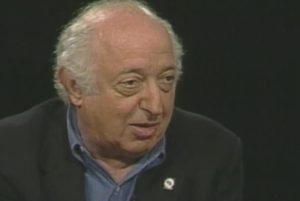
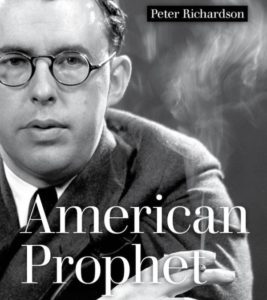
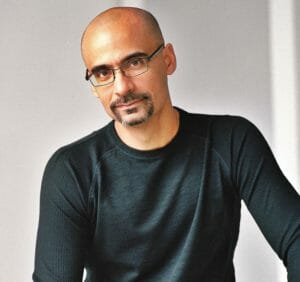

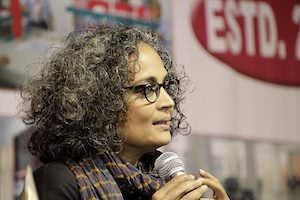
You need to be a supporter to comment.
There are currently no responses to this article.
Be the first to respond.